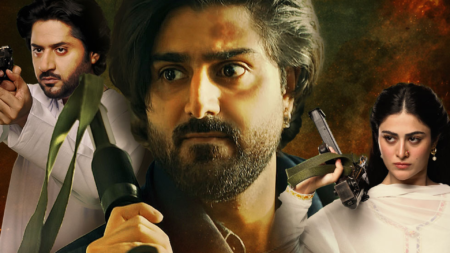Abu Aleeha, whose real name is Ali Sajjad Shah, is one of the most dynamic new voices in the Pakistani film industry. In recent years, the industry has slowly been recovering from decades of stagnation, and Abu Aleeha has played a notable role in this revival. Born in Pakistan, he began his professional life as a journalist and writer known for his satirical and critical style. Eventually, he transitioned into filmmaking, leaving a significant mark with his fearless approach, challenging the cultural and institutional restrictions that have long stifled Pakistani cinema.
From Journalism to Cinema:
Abu Aleeha started his career in journalism, contributing to various newspapers and magazines. He quickly became known for his bold writing style, blending political analysis with social commentary, often delivered with sharp wit and satire. This background deeply informed his cinematic vision—bringing depth, realism, and a willingness to tackle sensitive topics in his films.
Over time, he came to feel that the written word alone was not enough to inspire change. He stepped into the world of cinema through writing and directing, seeking a broader platform for artistic and social expression.
“Kataksha” – The Beginning of a Cinematic Journey:
In 2019, he made his directorial debut with the psychological horror film “Kataksha”, set in an isolated location. Despite its limited budget, the film gained attention for its intense atmosphere and fresh take on themes like fear and psychological isolation. It was an early indicator of Abu Aleeha’s distinct cinematic voice—one that does not shy away from risks or conform to commercial expectations.
“Kataksha” announced the arrival of a new kind of director—one who was unafraid of exploring darker, more complex themes and resisting the formulaic approach dominating mainstream Pakistani cinema.
Notable Films and Fearless Themes:
Following Kataksha, Abu Aleeha continued to direct a number of bold and compelling films. Among his most prominent works are:
Javed Iqbal: The Untold Story of a Serial Killer
controversial and internationally acclaimed film, it explores the real-life case of a notorious Pakistani serial killer. Rather than relying on cheap thrills, the film investigates the story with a humanistic and investigative lens. Despite receiving praise at international film festivals, it was banned in Pakistan due to its shocking nature, underscoring the challenges faced by filmmakers trying to break taboos.
Daadal
A social drama spotlighting the lives of women in the marginalized neighborhoods of Karachi. The film examines how violence and resilience coexist, highlighting women’s struggles and aspirations for empowerment. It’s one of his most powerful feminist statements in cinema.
Super Punjabi and Taxali Gate
In these films, Abu Aleeha explores themes of cultural identity and transformation, using a mix of comedy and drama. These works appeal to both mass and elite audiences, bridging popular entertainment with intellectual depth
Kukri
Another hard-hitting film that focuses on issues like childhood trauma, neglect, and psychological scars. The treatment is sensitive, and the storytelling is poignant.
Artistic Style and Vision:
Abu Aleeha’s directorial style is marked by realism, emotional honesty, and social consciousness. He favors naturalistic dialogues, simple cinematography, and grounded characters. Rather than glorifying heroes or indulging in shallow romance, he gravitates toward narratives centered on the marginalized and overlooked sections of society.
He also makes effective use of local cultural symbols and traditional music, enhancing the authenticity of his films. His approach avoids overdone visuals, instead favoring genuine expression and strong messaging over technical flashiness.
Cinema as a Tool for Changet:
For Abu Aleeha, cinema is not just entertainment—it’s a tool for societal change. He believes a good film should provoke thought, spark dialogue, and highlight unspoken problems. That’s why he chooses his subjects with great care, focusing on stories that challenge societal norms and open up difficult conversations.
This commitment to meaningful storytelling has earned him respect not just in Pakistan but also internationally. Many see him as a free voice in a landscape often dominated by repetition and conservatism.
What’s Next?
Despite facing institutional hurdles, Abu Aleeha continues to create, experiment, and push boundaries. Some of his upcoming projects include:
Mango Jutt
A culturally rich comedy expected to be a crowd-pleaser with a strong Punjabi flavor
Party Girl
A modern drama featuring Dananeer Mobeen that explores the lives and struggles of young women in today’s urban society
In addition, he actively supports emerging talent by introducing new actors and grooming young assistant directors through his productions.
In a film industry that is still finding its footing, Abu Aleeha stands out as a visionary director—one who refuses to compromise on truth, courage, and artistic integrity. His films are proof that Pakistani cinema can be both socially relevant and creatively bold.
As he continues his journey, both audiences and critics await his future work with anticipation, hoping he will deliver more of the honesty, fearlessness, and cinematic beauty that have become his signature.
Kamran Ashraf
